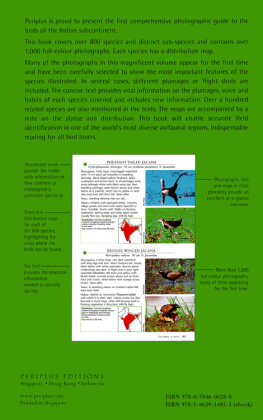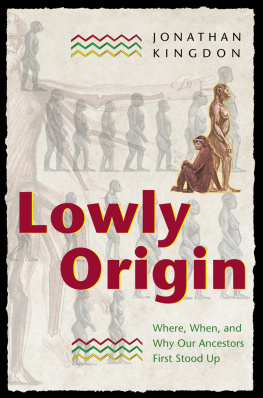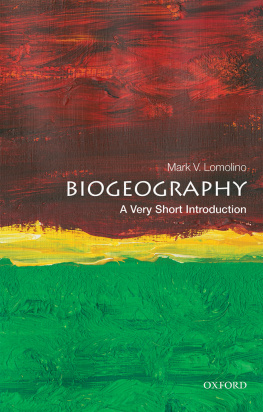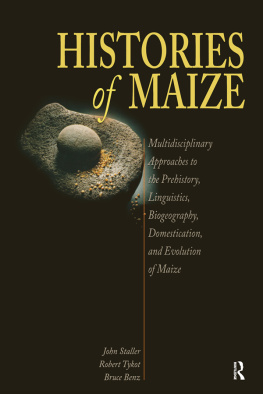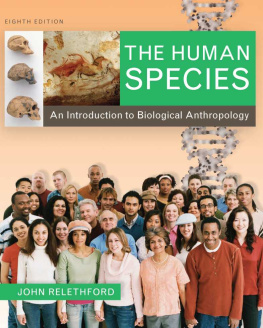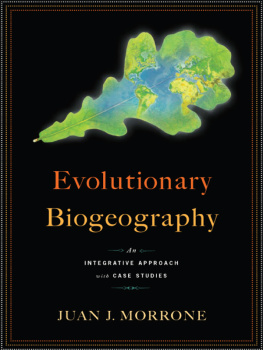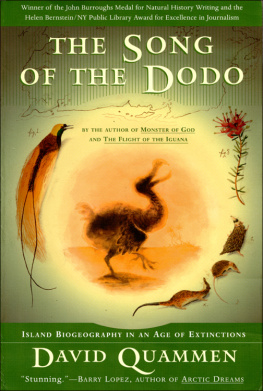Human Biogeography
Human Biogeography
Alexander H. Harcourt

University of California Press, one of the most distinguished university presses in the United States, enriches lives around the world by advancing scholarship in the humanities, social sciences, and natural sciences. Its activities are supported by the UC Press Foundation and by philanthropic contributions from individuals and institutions. For more information, visit www.ucpress.edu .
University of California Press
Berkeley and Los Angeles, California
University of California Press, Ltd.
London, England
2012 by the Regents of the University of California
Library of Congress Cataloging-in-Publication Data
Harcourt, A. H. (Alexander H.)
Human biogeography / Alexander H. Harcourt.
p. cm.
Includes bibliographical references and index.
ISBN 978-0-520-27211-8 (cloth : alk. paper)
1. Human geography. 2. Physical anthropology.
3. Biogeography. I. Title.
GF41.H375 2012
304.2dc23
2011052055
19 18 17 16 15 14 13 12
10 9 8 7 6 5 4 3 2 1
The paper used in this publication meets the minimum requirements of ANSI/NISO Z39.48-1992 (R 1997) (Permanence of Paper).
Cover image: Detail from map of native languages and language families from Handbook of North American Indians, Vol. 17, Languages, ed. Ives Goddard.
Smithsonian Institution (GPO), 1996.
Contents
PART ONE. WHY AND HOW ARE WE WHERE WE ARE?
HISTORICAL BIOGEOGRAPHY OF HUMANS
PART TWO. ENVIRONMENTAL INFLUENCES ON
HUMAN NATURE, DIVERSITY, AND NUMBERS
Acknowledgments
I thank Robert Bettinger, Chris Darwent, Victor Golla, Frank Marlowe, David G. Smith, and Tim Weaver for information or unpublished data, and for very helpful discussion.
I am very grateful to David G. Smith, Teresa Steele, John Terrell, and Tim Weaver for their commentary on several chapters. They educated me in areas not my own. I thank also Mark Lomolino for expert and detailed editorial and biogeographical criticism that enormously improved the result.
Margot Wood and Snigdha Garise helped with collation and analysis of data, and Alexandra Towns and Keir Keightley provided GIS analysis and map production. I thank them. Thanks also to Ives Goddard and Laurie Burgess for permission to reproduce the book covers map.
The book would not have been possible without the support of my wife, best friend, severest critic, and scientific partner, Kelly Stewart. She read the whole text and hugely improved it.
A fair amount of the analysis and the occasional idea and suggestion is mine. Otherwise, the book is a synthesis of the field of human biogeography, in other words an analysis of the work and ideas of many others. They should be considered as coauthors, insofar as I have interpreted their work as they would wish.
Alexander Harcourt
Anthropology; Ecology
UC Davis, CA 95616
1
Biogeography and Humans
An Introduction
Ethnology is the science which determines the distinctive traits of mankind; which ascertains the distribution of those traits in present and past times, and seeks to discover the causes of the traits and of their distributions.
modified from T. H. Huxley, 1865, On the Methods and Results of Ethnology, Fortnightly Review
This book is about how and why our species, Homo sapiens sapiens, is distributed around the world in the way it iswhy we are what we are where we are. It is therefore both anthropology and biogeography. Anthropology is literally the study of humans, and it is nicely summarized in Thomas Huxleys description of what he termed ethnology. Biogeography perhaps needs a bit more explanation.
One part of the field of biogeography investigates why organisms are where they are. How did they get there? Why are they where they are and not somewhere else? Why is this sort of organism here, and that sort of organism there? Scientists and others have been asking these questions for centuries. God used to be the answer, and still is for half the American population. But in science, biogeography took off with the explorations of the 18th century [].
A modern example of biogeography is the quantitative, statistical approach of phylogeography, a subfield of biogeography that relates data on the distribution of organisms to data on their evolutionary trajectories, their phylogeny []. For anthropology, phylogeography is exemplified by the large amount of work on the origins of native Americans.
A major branch of biogeography is now often known as macroecology []. Macroecology as a branch of biogeography relates diversity (e.g., number of species or cultures in a region) or density (e.g., individuals per square mile) or the traits of organisms (e.g., body size) to various quantitative measures of space on a large scale. For example, why do taxonomic and cultural diversity vary with latitude? Do animals and human cultures at higher latitudes have larger geographic ranges? Why are organisms at higher latitudes stockier than those from the tropics? Do large islands have more species or cultures than do small islands?
A perusal of this books table of contents will give an idea of the range of biogeography as a discipline. Mark Lomolino et al. provide in ].
WHY HUMANS?
In many respects, humans are biogeographically just another species. Why then concentrate on humans? In brief, I hope that both biogeography and anthropology can benefit from a more specific and extensive concentration on the topic of the biogeography of humans than so far attempted [].
What can anthropology contribute to biogeography? The answer is the huge amount of data and understanding that anthropology has of regional variation, both past and present, in our own species and its close relatives. Is there another species on which we have as large a sample of relevant data as we do for humans? Sample sizes of hundreds of individuals and scores of molecular markers are commonplace in studies that directly or indirectly concern the distribution of humans. Globally, the sample is 10 times as large and increasing all the time [].
], it is, of course, utterly negligible by comparison to the information that archeology can provide.
Yet as far as I can tell, little of this anthropological knowledge reaches the biogeographical literature. For instance, although the title of Ian Simmons Biogeography: Natural and Cultural []. Yes, we are just one of thousands of species, but does not the amount we know about us deserve more than the 2% of space devoted to us?
An additional benefit to the field of biogeography of attention focused on human biogeography might be that because of our intrinsic interest in ourselves, the topic of biogeography as a whole would receive more than the minor amount of attention it does in the popular press [].
What can biogeography contribute to anthropology? Biogeography in all its forms has exploded in the last half century, and perhaps especially in the last two decades []. It seems to me that anthropology has yet to fully embrace that immense increase in knowledge and understanding.
It is not the case that biogeography is ignored in anthropology []. Despite the quote from Huxley at the start of this chapter, which is effectively an explicit statement that much of anthropology is the biogeography of humans, it is not treated as such. Consequently, relevant biogeographic patterns and principles developed largely by analysis of nonhumans have perhaps not been as fully integrated into our understanding of humans as they could have been.
Next page




